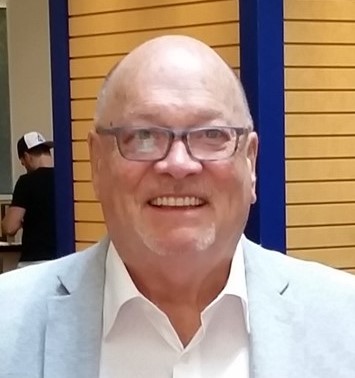I Have Parkinson’s But It Doesn’t Have Me: Bill Robson
In his late 40s, Bill began having random choking episodes. He would be eating or drinking at home or in a restaurant. His throat would simply close up and panic would set in. With the advice and support of his doctor, he learned breathing techniques to control the fear and to allow airflow. Little did he know, he was about to embark on a 20-year journey to a Parkinson’s Disease (PD) diagnosis.
Over time, other symptoms began to occur – memory loss, moving a bit slower than usual, fatigue – all put down to normal aging. But then the tremors began. Food wouldn’t always stay on his fork and when he moved, he had a sensation of falling while remaining upright. At that time, in his 60s, after doctors, neurologists and the Toronto General Hospital Movement Disorder Clinic, he received his diagnosis. It was real.
After the initial shock and disbelief subsided, Bill wondered, now what? “It’s like a fork in the road where you choose to let it get you or you walk along the path that looks harder but allows you to keep living your life the way you want to and not give PD power or control. It’s my choice to keep that control.”
Now a few years later, the symptoms are stronger and more apparent. Words don’t always come out as planned and he is often unsteady. Once an avid guitarist, his fingers don’t move well enough for him to play any longer. An active volunteer with hospice providing grief support and transportation for others, and a grief facilitator with Bereaved Families of Ontario, he’s had to make a few changes in the type of volunteer work he does with these organizations. Driving is awkward at times, and there are days where his concentration isn’t where he wants it to be.
While navigating through Parkinson’s, Bill has discovered what he calls the World of PD. “Parkinson’s is truly a global issue and I have had the opportunity to be involved in online peer support groups, sharing my experience and learning from others about medications, available supports, and how friends and family react. These platforms create an awareness of the devastation of Parkinson’s, but also celebrate the miracle of how everyone uniquely adapts and moves on. The internet has been a god-send during this time.”
Not one to give up his love of music completely, Bill has become a member of the Parkinson’s Music Choir (https://psso. ca/programs-services/parkinsons-music-choir/), a therapeutic singing program to help support speech, communication and respiratory strengthening and endurance. Currently on a virtual platform, people enjoy connecting by singing and sharing songs while learning to develop stronger vocal control. A recent highlight for this group was a combined live and virtual performance at last year’s Regional Parkinson’s Conference.
Bill also participates in the Louder, Clearer program (https://psso.ca/programs-services/ louder-clearer-a-parkinsons-voice-trainingprogram/), which is provided free of cost through Parkinson Society Southwestern Ontario. Louder, Clearer is an eightweek program that offers exercises and techniques to help improve vocal loudness and clarity when speaking. It also offers human connection during a challenging time.
Bill is grateful for the unconditional love and support of his wife of 42 years, Diane, as well as his four adult children, his eight grandchildren and his two great-grandchildren. One of his proudest moments over the past couple of years was when two of their older grandchildren asked him to officiate at their weddings. “I was honoured to stand and join them in matrimony. Each went on to bless us with a great-grandson, so now we enjoy even more FaceTime on our family portal”.
Originally uncertain how to share his life with Parkinson’s with friends and neighbours, but knowing they would see the changes, he took his chances. He was greeted with the most positive and compassionate support and acceptance. He realized Parkinson’s did not define who he was, nor did it have to change him or his relationships.
Bill offers this advice to anyone recently diagnosed or living with Parkinson’s: “PD is not a death sentence! It is a call to evaluate your life, how you spend your time. Little by little PD will redefine your abilities, but it does not have to define who you are as a person on the inside. Be the best you can be at whatever you decide to do or to be. My favourite phrase is now made up of 10 powerful two-letter words – “IF IT IS TO BE, IT IS UP TO ME.” Words to live by.
Written by Cheryl Losch, Volunteer, London
